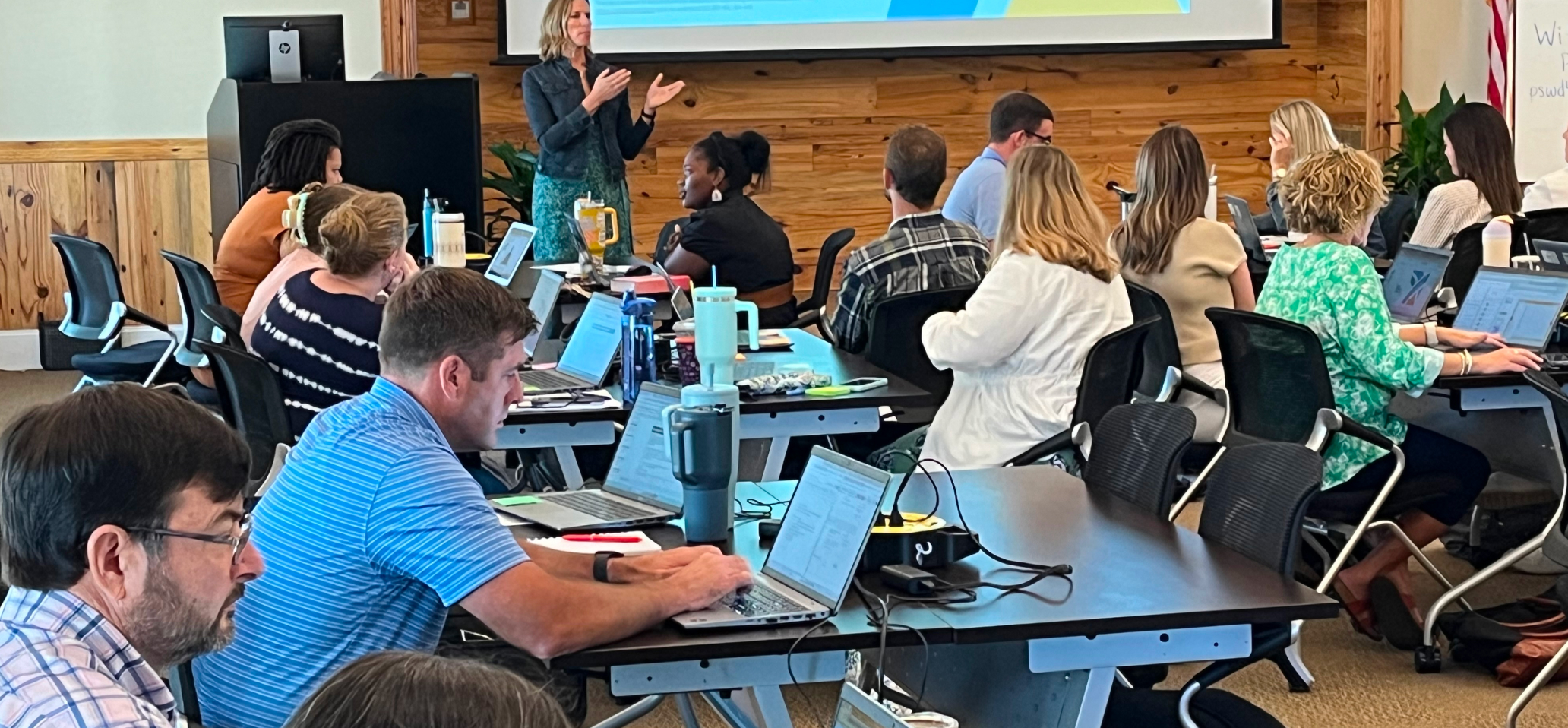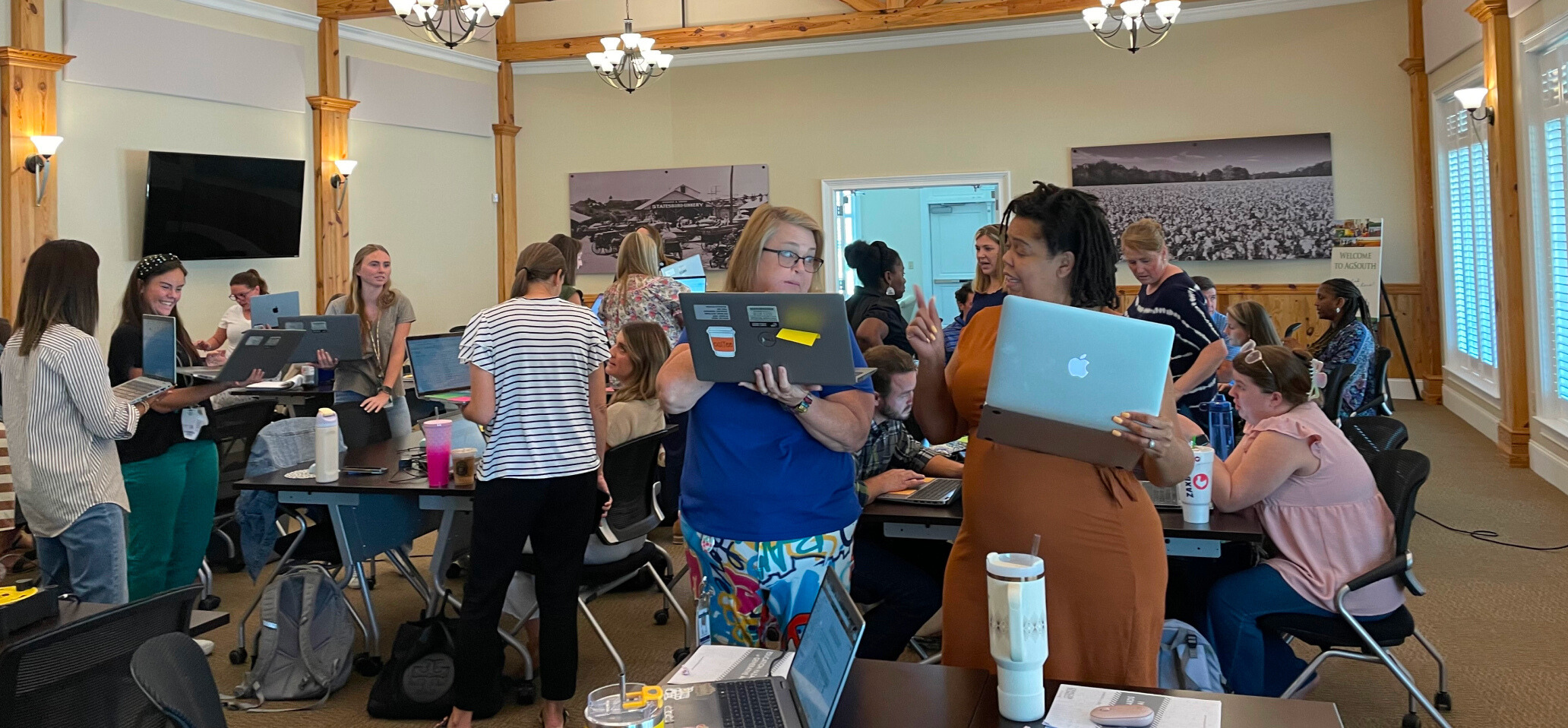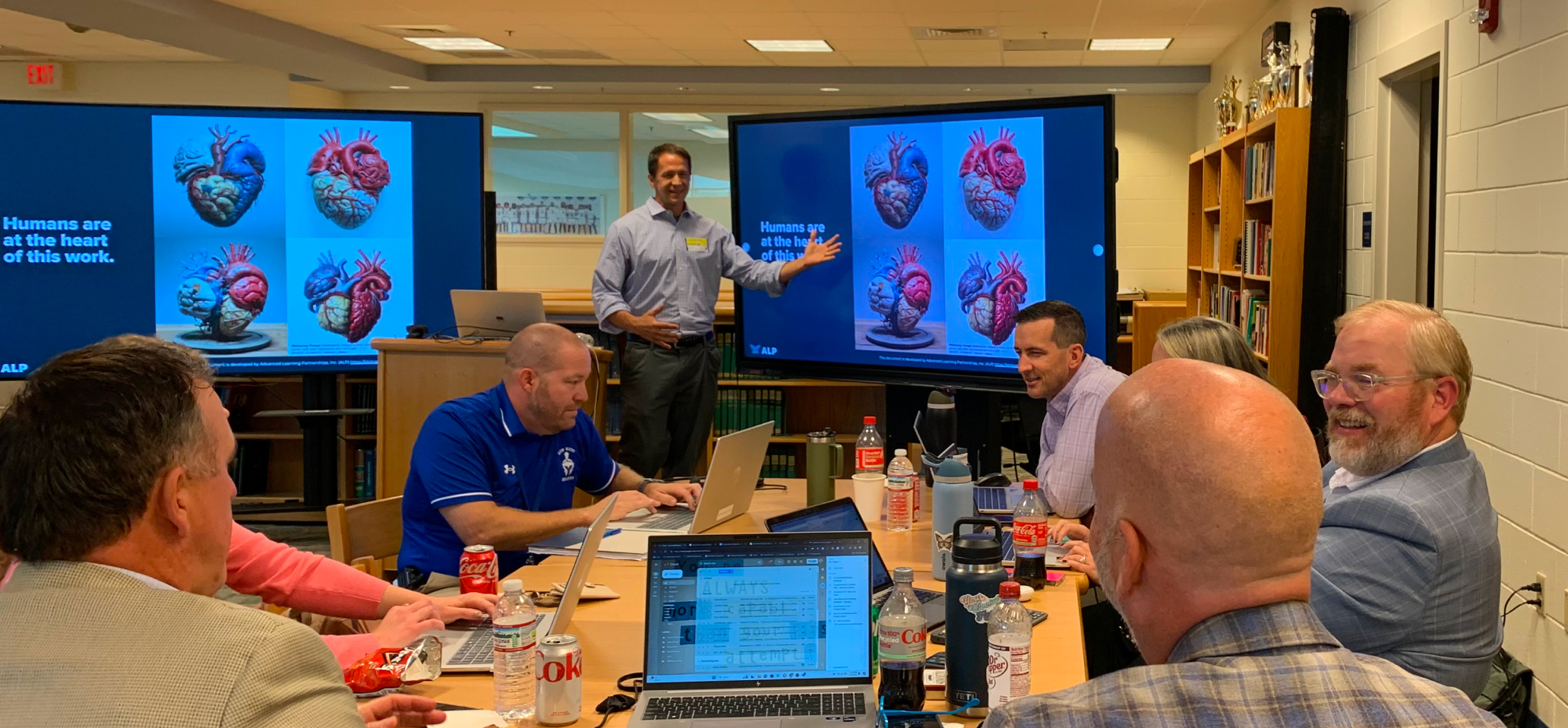Generative AI is transforming the future of education, but the rapid pace of change leaves many school districts unprepared. This case study showcases how Advanced Learning Partnerships (ALP) collaborates with K-12 districts to develop customized, systems-level AI integration strategies, ensuring ethical, effective, and sustainable use of this powerful technology. Learn how districts like Ottawa Catholic and Mesa Public Schools are leveraging ALP’s expertise to unlock AI’s full potential while tackling the pressing challenges of the digital age.
Do you need help unlocking the full potential of AI for your district?
The Role of Generative AI in K-12 Education: Balancing Opportunities and Challenges
Generative AI brings both promise and complexity to K-12 education. Research from Advanced Learning Partnerships (ALP) and Project Tomorrow reveals a split perspective: 73% of educators believe AI can enhance learning, but 68% worry about over-reliance on technology.
In Clever’s 2024 Annual Report, 80% of educators stated that technology makes their jobs easier, up from 63% in 2023. However, many educators still require support in areas like administrative tasks, communication, and lesson planning.
CoSN’s AI & Accessibility in Education Report highlights how AI tools can improve personalized learning, especially for students with disabilities, and alleviate teacher burnout by automating tasks such as grading and attendance. This automation allows teachers to devote more time to student support.
As a district that took pride in innovation, we knew we couldn’t be blocking AI. We needed to learn about it, but we just didn’t have the capacity. We didn’t know the potential. We didn’t really know all of the risks.
As AI reshapes classrooms, it is essential for school districts to develop clear, cohesive AI strategies. Without proactive planning, the full potential of generative AI may remain untapped, leaving districts unprepared for the critical opportunities and challenges ahead. |
The Ottawa Catholic School Board’s Response: Partnering with ALP for AI Integration
Tom D’Amico, Director of the Ottawa Catholic School Board, recognized that AI could not be ignored. “As a district that prided itself on innovation, we knew we couldn’t block AI. We needed to learn about it, but we lacked the capacity. We didn’t fully understand the risks or potential.”
To address this, the Ottawa Catholic School Board partnered with ALP to create a thoughtful, human-centered AI integration strategy. Together, they unlocked AI’s potential while addressing the complexities of its use. ALP’s unique approach emphasizes community empowerment, collaboration, and the goal of ensuring that technology enhances human experiences rather than overshadowing them. This partnership allowed the school board to lead with purpose in an education landscape increasingly shaped by AI.
Whatever generative AI becomes, it’s critical that we, as human beings, hold onto what makes us human,” says Amos Fodchuk, President and Founder of ALP. ALP stresses that people and systems, not technology, should drive meaningful change.
Whatever generative AI becomes, it’s critical that we, as human beings, hold on to what makes us human.
ALP’s Approach to AI Implementation in Schools
The Year of Learning: AI Implementation as a Gradual, Iterative Process Since February 2023, ALP has partnered with U.S.-based K-12 districts to develop strategies, policies, and plans that maximize AI’s benefits while mitigating risks. Adam Garry, an executive consultant with ALP, explains, “There’s no one-size fits-all blueprint for AI integration.” Instead, ALP empowers districts to develop their own tailored guidelines and frameworks.
ALP’s Year of Learning framework encourages districts to view AI integration as an ongoing process, allowing time for educators, administrators, and community members to build AI literacy, explore its potential, and develop thoughtful policies to support its use. This approach fosters collaboration, reflection, and patience, ensuring that stakeholders fully grasp the implications of AI before making decisions about its implementation.
A Systems-Level Approach to AI in K-12 Schools ALP’s AI implementation strategy is rooted in systems-level change rather than focusing on isolated classrooms. Recognizing the complexity of education systems, ALP prioritizes building both human and organizational capacity. Instead of offering one-size-fits-all solutions, ALP collaborates with school districts to co-create strategies, starting by identifying each organization’s strengths.
Jason Van Heukelum, Superintendent of Winchester Public Schools in Virginia, praised ALP’s collaborative approach: “We had structured meetings with clear deliverables from both parties. ALP pushed us to be better. A key element of ALP’s approach is the formation of cross-functional leadership teams. By involving stakeholders across departments from district leaders to finance and HR—ALP ensures that AI enhances every aspect of the organization, not just classroom instruction. This comprehensive perspective helps districts navigate AI’s complexities, improving learning outcomes and operational efficiency while ensuring all staff members are prepared to adopt the technology
Personalized AI Solutions for School Districts ALP emphasizes that AI should be used purposefully, aligning with each district’s specific goals and supporting human-centered learning.
A key part of this process is the development of ethical frameworks, guiding principles, and policies that ensure AI is used both ethically and effectively. ALP also assists districts in designing communication plans that promote transparency and open, two-way dialogue between schools and their communities.
Recognizing the unique challenges and goals of each district, ALP customizes strategies to fit their specific needs. For example, the Ottawa Catholic School Board created a tailored teacher toolkit, guiding principles, and AI guidelines for students in collaboration with ALP, ensuring that AI implementation reflected the district’s culture and priorities.
We had structured meetings with clear deliverables from both parties. ALP pushed us to be better.
Impact on School Districts
AI integration presents several challenges, such as the rapid pace of technological change and a lack of dedicated personnel to manage it. Many districts don’t have a role focused on AI, which slows progress. ALP’s systems-level approach helps districts achieve key results, including:
Development of Guiding Principles ALP helps districts establish ethical, transparent AI guidelines. For Ottawa Catholic, this included privacy safeguards and equity-focused principles to ensure responsible AI use.
Capacity Building Across Departments ALP’s approach empowers all stakeholders, from administrators to finance teams. Andi Fourlis, Superintendent of Mesa Public Schools, says, “What I admired was that after every professional learning session, we left with tools we could replicate in our day jobs.”
Creation of AI Tools and Resources ALP works with districts to create practical AI tools, such as Ottawa Catholic’s assessment chatbot, AI guidelines for students, and teacher prompt guide, all designed to foster engagement and maintain transparency.
Networking and Collaboration ALP connects districts with a broader network of schools, offering ongoing learning, webinars, and collaboration with other school boards. Tom D’Amico of Ottawa Catholic says, “You’re accessing professionals who help you navigate rapidly changing AI technology.”
Improved Teacher Support and Efficiency AI tools introduced through ALP’s partnerships help teachers save time and focus more on personalized learning. For example, Ottawa Catholic used AI to overcome language barriers and improve student support.
A Thoughtful, Human-Centered Approach
ALP’s approach to AI implementation is distinguished by its thoughtful, human-centered focus. By building capacity, fostering collaboration, and ensuring the purposeful use of AI, ALP helps districts effectively navigate the complexities of this rapidly evolving technology. Their systems-level strategy, combined with a strong commitment to ethical standards and continuous learning, ensures that AI enhances education while maintaining the integrity of the learning process.
For school districts seeking to implement AI in a meaningful and sustainable way, ALP provides the expert guidance needed to lead the transformation.
What I admired and really valued is after every one of our professional learning sessions, we left with tools that we could replicate back in our day job.


